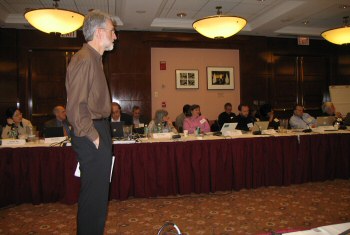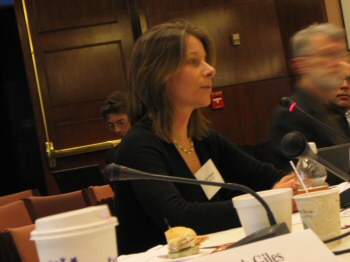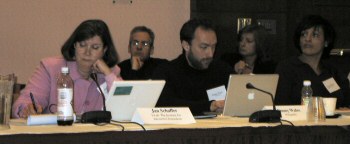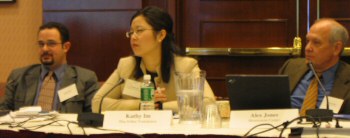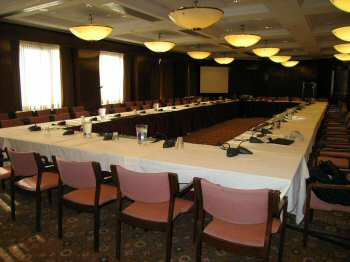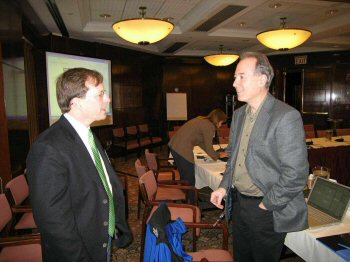January 23, 2005
[bjc] Wrap-ups
Here are some people reflecting on the Blogging, Journalism and Credibility conference:
Rebecca Mackinnon. Snippet:
…the interests of the people communicating on the web will drive the evolution. But if this “interest” largely represents the interest of middle-class, white, affluent, early adopters, we are in danger of creating a feedback loop that would become less and less inclusive of people who were not in on the conversation at the beginning. Some of us are looking at ways to broaden the global conversation with such projects as Global Voices and the Digital Divide Network.
John Palfrey. Snippet:
We started this event — and an associated little firestorm — by broaching the topic of credibility on the web. It was something, we thought, that both journalists and bloggers ought to have a role in working on. Over the past two days (January 21 and 22, 2005), we made some progress in that direction. But not frankly all that much progress. We’re certainly a long way from a shared set of principles, or a code of ethics, or even an understanding of how they could come about. (Personally, I think that there are already norms in the blogosphere that result in credibility, that such norms will continue to come from the bottom up, that those norms will be undergirded by accountability to one another, and that that will work, but I might be wrong. And this notion did not come up at the event.)
Jay Rosen. Snippet:
“The forces of denial are in retreat.” Which is simply my impression–an educated guess, really–about where the mainstream journalism world is, right now, on matters of blogging, journalism, Internet, and trust. For a very long time, the mainstream press has denied that it needs to change any of its ideas about journalism in order to survive and prosper on the new platform. Adapt what you’re doing now? Sure. Journalists knew they had to do that. Transfer it to the new platform? You bet; lots of transferring would be needed. Preserve “traditional” values? Yes, journalists thought it was important to conserve what was valuable about journalism. Re-purpose content online? Of course. But…
Dave Winer. Snippet:
…the real accomplishment may be that now we better understand who we are, having had a chance to take the same side, even though we’re so different. For example, I came to admire John Hinderaker, of Power Line, even though our politics are opposite. We have deeper values that bind us. Same with Jimmy Wales, the Wikipedia guy. Again, we’re opposites in the way we create text but we’re both advocates for the same idea, people doing it for themselves.
Zephyr. Snippet:
One model of journalism … says that the journalists are good reporters because they are not from the community. A stranger makes a better journalist than a friend; the best journalist is detached. When people get excited about citizen journalism (people including myself), we get excited about news – information and framing – coming from a much wider group of storytellers, but also a group that reflects and is the community – the jury of the 1500s.
But I can’t fit this into a box — truth seeking mechanisms are not only about truth, they are also…about the act of witnessing itself.
Jon Bonne. This is what the conference looks like filtered through the eyes of a food blogger. Snippet:
No dis to the Harvard Faculty Club, but I was finding it pretty hard to drink their wine last night – a Chilean cab sauv that was pretty much all oak and blackberry, with that vegetal underripe thing lurking in the background and nothing else. Even one of their servers acknowledged, sotto voce, that it was kinda nasty.
(Jon blogs about the substance of the conference here.)
Sources:
Transcripts and audio
Dave’s conference blog aggregator
Bloglines aggregator
del.icio.us feed
Wikinews page
Technorati tag
Bloglines aggregator
del.icio.us feed
Wikinews page
Transcript and audio of my dinner talk
Technorati tag: bjc








